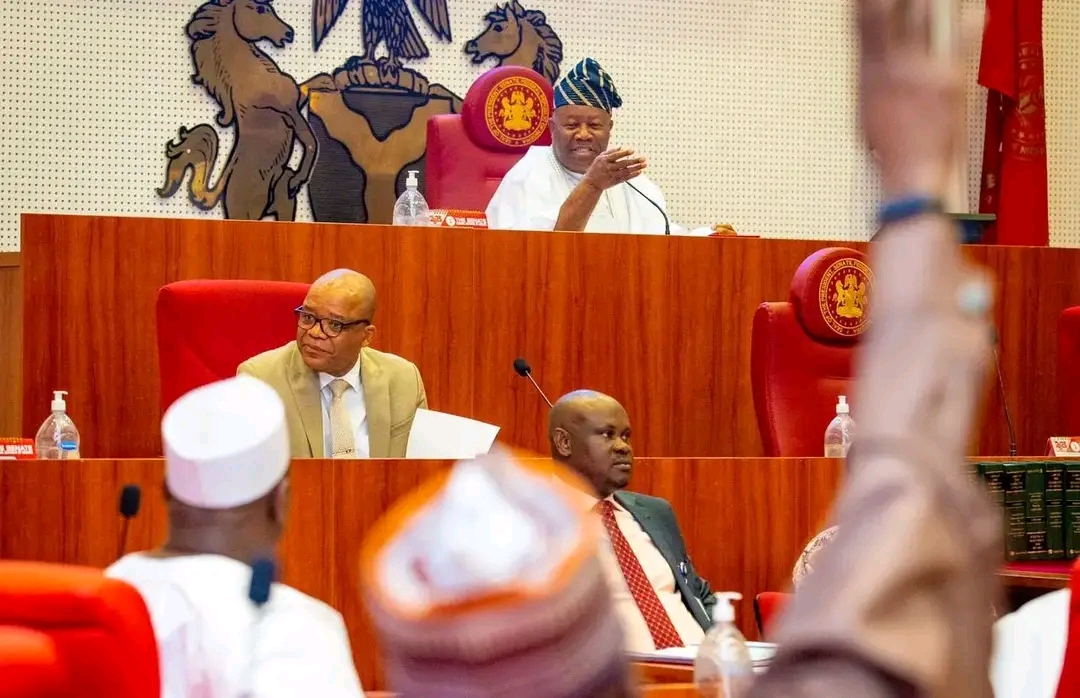The Senate on Tuesday approved President Bola Tinubu’s external borrowing plan of over $21 billion for the 2025–2026 fiscal cycle, paving the way for the full implementation of the 2025 Appropriation Act.
The borrowing package comprises $21.19 billion in direct foreign loans, €4 billion, ¥15 billion, a $65 million grant, and domestic borrowing through government bonds estimated at ₦757 billion.
Also included is a provision to raise up to $2 billion via a foreign-currency-denominated instrument in the domestic market.
The approval followed the presentation of a report by the Chairman of the Senate Committee on Local and Foreign Debt, Senator Aliyu Wamako, who noted that the proposal was first submitted to the National Assembly on May 27 but faced delays due to the legislative recess and documentation issues from the Debt Management Office.
The Chairman of the Senate Committee on Appropriations, Senator Olamilekan Adeola, explained that most of the loan requests had already been incorporated into the Medium-Term Expenditure Framework and the 2025 budget.
“The borrowing is embedded in the 2025 Appropriation Act. With this approval, we now have all revenue sources, including loans, in place to fully fund the budget,” Adeola said.
While the approval drew broad support, it also stirred debate in the chamber.
Senator Sani Musa clarified that the disbursement of the loans would span six years, not just the 2025 fiscal year. He defended the borrowing, arguing that it aligns with global economic practices.
“No economy grows without borrowing. What we are doing is in line with global best practices,” Musa said.
Senator Adetokunbo Abiru, Chairman of the Senate Committee on Banking, Insurance and Other Financial Institutions, assured lawmakers that the loans are concessional and compliant with the Fiscal Responsibility Act and Debt Management Act.
“These are long-term loans, some with tenors ranging from 20 to 35 years, and they are strictly tied to capital and human development projects,” Abiru noted.
However, Senator Abdul Ningi (Bauchi Central) raised concerns about transparency and equitable distribution, stressing that Nigerians deserve to know the specifics of the loans and their intended impact.
> “We need to tell our constituents exactly how much is being borrowed in their name, and for what purpose,” he warned.
Key sectors targeted in the borrowing plan include infrastructure, agriculture, security, power, housing, and digital connectivity. A major highlight is the allocation of $3 billion for the revitalisation of the Eastern Rail Corridor, stretching from Port Harcourt to Maiduguri.
Senator Victor Umeh (Anambra Central) described the rail project as historic.
“This is the first time I have seen $3 billion allocated to rebuild the eastern rail line. That alone justifies my full support,” Umeh said.
Deputy Senate President Jibrin Barau commended the committee’s work and stressed that the borrowing plan reflects national inclusiveness.
“This shows that the Renewed Hope Agenda is working. No region is left out,” Barau stated.
The Senate leadership underscored that all funds must be deployed strictly for capital and development projects in line with public finance regulations.


